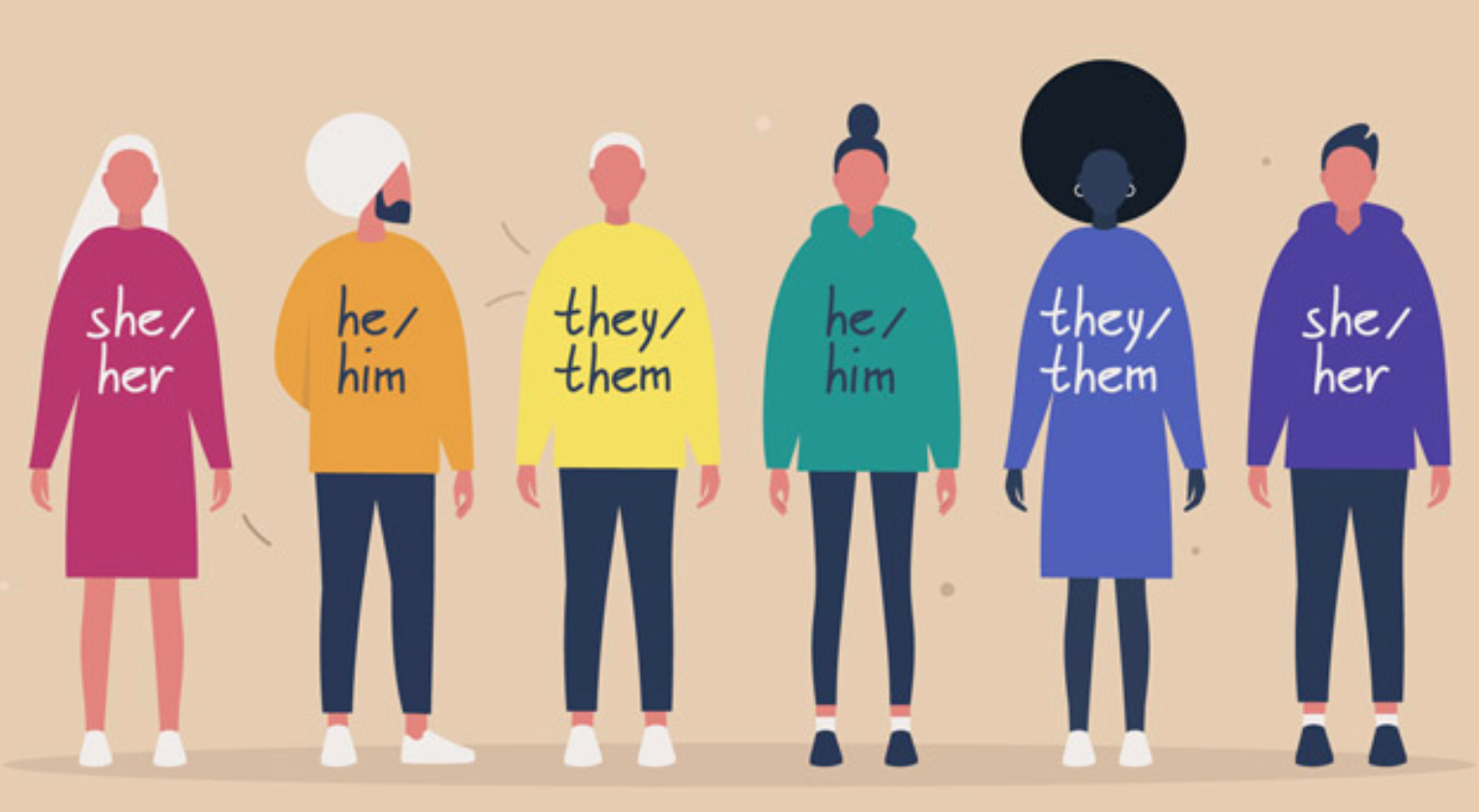
I took the photo above from Personnel Today's article, "Gender Identity: How to be More Inclusive When Using Pronouns."
I've always been all for inclusivity and for calling people what they want to be called, but for a long time, I had a grammar hangup that got in the way of this value. I wondered why people who didn't want to be called by the she-her-hers or he-him-his pronouns had to select they-them-their, which were, in my mind, plurals. I didn't like the idea of saying, "They like key lime pie" about a single person. Instead, I thought that to talk about just one person, I should say, "They likes key lime pie." But that sounds ridiculous.
Then, my sister (yes, again, hi V!) taught me something interesting about the language that should have already been clear to me. Back in the day (and still in some places), the singular second person pronoun was thou and the plural was you. During the 1600s, thou fell out of use to be replaced by the formerly plural you, which still uses the plural versions of verbs. Obviously, I would never say, "You needs more pie," when talking to one person, even though "needs" is the singular version of the verb. (And even though everyone needs more pie!)
Well, it isn't a big stretch to realize that they can follow in you's footsteps, a pronoun that works for a singular person and plural people but takes the plural version of the verb in both cases.
Have you/thou ever been schooled in a way that helped to align your beliefs better? Please share a thought or two in the comments.
Hi C! I had a hard time with singular “they” for a long time too and wished we had a different singular non-gendered pronoun. But once I gave in, it was much easier than I’d thought to think of someone as “they.” It’s also caused me to think a lot about pronouns in general. I don’t know for sure, but I think Chinese has no differentiation between he, she, and it, and I know Spanish has no non-gendered “it” option at all but does not differentiate between human and object pronouns. So I guess there are a lot of options that sound standard to different people in the world and resistance is either inertia and habit or prejudice. And I don’t want to resist for any of those reasons, so I’ve gradually embraced. Or at least am trying!
You’re the one who helped me to realize the “you are” singular, so thank you. Yes, it’s hard to change…but important and worth the effort. Pronouns do make life easier and less repetitive, but they can also make life confusing and awkward and normative. Maybe there’s a better system out there yet to be discovered/invented.
This is fascinating and useful!
Thanks. Yes, I had a hard time with the grammar for a while; now, I get it.